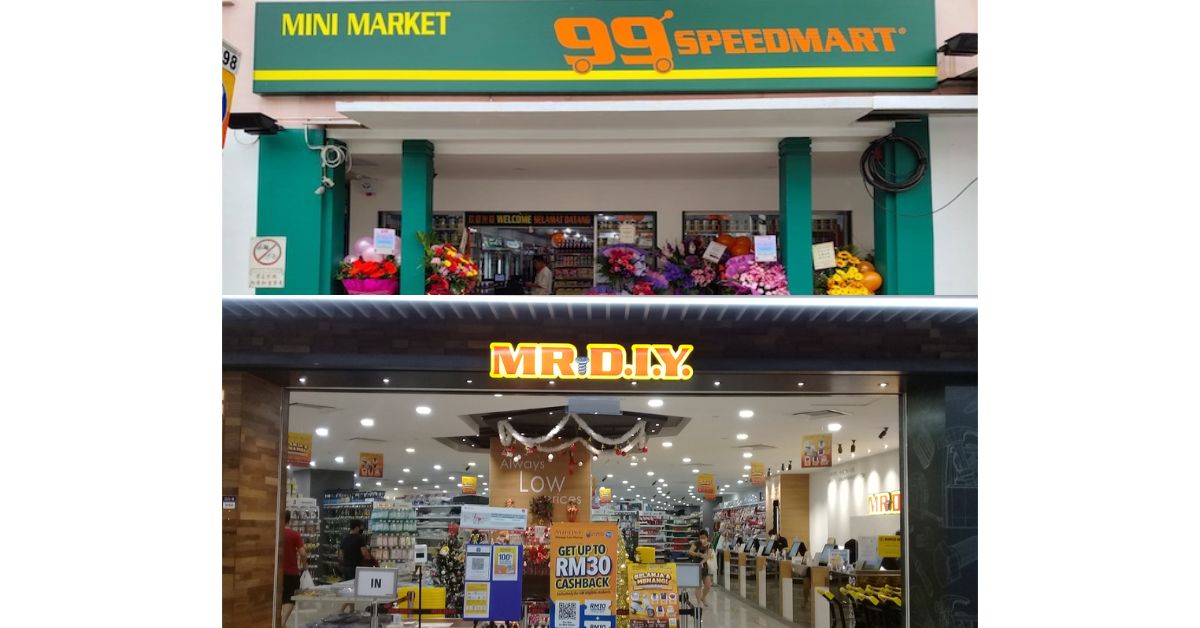Malaysia’s retail market has seen steady growth due to strong macroeconomic conditions. According to Mordor Intelligence, the sector’s size is estimated at USD89.66 billion in 2024 and projected to reach USD 119.64 billion by 2029, reflecting a compound annual growth rate (CAGR) of 5.94%. It is also one of the stronger consumption driven markets in the region, with retail sales increasing by 3.8% in 3Q24 with projections indicating a 4.4% growth in retail sales in 4Q24. This momentum makes consumer stocks a compelling sector to explore.
Furthermore, there is strong sector tailwind as Malaysia’s inflation is rather stable at about 2% YoY in 2024. Bank Negara Malaysia (BNM) has also maintained the Overnight Policy Rate (OPR) at 3.00% throughout 2024. In addition, the government plans to reduce the spending deficit to 3.8% of GDP, implementing measures such as broadening the sales and services tax (SST) and reforming fuel subsidies, including the rationalization of RON95 gasoline subsidies by mid-2025. These policies overall should have positive sentiment in the economy especially when other countries are still combating inflationary pressures.
In Malaysia, we have picked 2 prominent players in the consumer retail sector and seek to dive deeper to see which one is positioned as a stronger Retail Play. While 99 Speedmart and MR DIY operate in different aspects of the consumer retail sector, they are dominant players in their own fields. 99 Speedmart is a leading convenience store chain in Malaysia, offering a wide range of daily essentials at competitive prices. MR DIY is a prominent home improvement retailer originating from Malaysia, specialising in affordable and quality household products.

99 Speedmart have over 2,600 outlets across Malaysia and growing international presence in countries such as Singapore and Indonesia. The stores are known for their well-organised layouts, extensive selection of groceries, household items, beverages, and personal care products, making them a preferred choice for quick and efficient shopping.

On the other hand, Mr DIY has grown into one of the largest retail chains in Southeast Asia, with over 4,000 stores across Malaysia, Thailand, Indonesia, and other countries. MR DIY offers a diverse product range, including hardware, electrical, stationery, household items, gardening tools, and more, catering to various customer needs. The stores follow a “Always Low Prices” strategy, ensuring affordability without compromising on quality. The brand’s commitment to innovation, customer-centric solutions, and an extensive product mix has solidified its position as a trusted one-stop shop for home improvement and lifestyle needs.
99 Speedmart operates in the consumer staples merchandise retail category while Mr DIY operates in the building product and home supply stores category. Since both stocks are fundamentally different and operate in different sectors, we decided to compare their multiples with respect to their global peers with similar business models to measure their valuation.
99 Speedmart has seen strong growth year on year. This is evident as year on year growth on average about 15% which is very strong. The business is also profitable. However, the only concern is the inability of the business to scale margins alongside expansion. This has led to profit after tax in 2023 (RM400 million) below lower than profit after tax in 2021 (RM 419 million) when its revenue is almost RM 1.4 billion more.
Furthermore, 99 Speedmart has had a blockbuster IPO and is currently consolidating at record highs. We did a simple screening for businesses with EBITDA margins similar to 99 Speedmart. 99 Speedmart’s EBITDA margins (7.6%) is about the average of the companies (7.4%) but it’s TEV/EBITDA multiple (24x) is almost double the highest multiple in the range (13x). This suggests the possibility of overvaluation and may experience correction in share price.

However, we do want to highlight that the 99 Speedmart is one of the smaller businesses with a revenue of US$1.9billion which is 3 times smaller than the largest in the comparables. This emphasises the business’s ability to maintain high margins despite a smaller size. Thus, 99 Speedmart may be in for a momentum play due to such operational strength and strong investor sentiment but from a valuation standpoint, we may see some correction in the near term.
For Mr DIY, it has also recorded strong growth year on year but at a slower pace than 99 Speedmart. On its recent earnings, it gapped down due to missing estimates as net profit fell due to a higher administrative and operating expense. However, we believe that this is expected due to its steady store expansion across the region. Based on the edge Malaysia, Mr DIY has invested RM9.6 million for a 49% stake in KKV’s operations in Malaysia in May. It also stated that the lifestyle retail chain from China, has three stores in Malaysia and generates more than triple the average monthly revenue of Mr DIY’s own stores. This could signal stronger reported earnings in the future.

Similarly, we found some comparables for Mr DIY. Its EBITDA margin (20.9%) is within the range of the comparables (9.2% – 27.4%), slightly higher than average (16%). This aligns with its TEV/EBITDA multiples comparison (18x for MR DIY, 12x for average, 21x highest). The more reasonable multiples compared to its peers provides a margin of safety and its ability to maintain one of the higher margins signals operational strength.

Overall, both businesses have exceptional operation strength and have demonstrated this by reporting one of the stronger financials compared to their global peers. We see the possibility of both businesses reaping the tailwind of strengthening consumption of Malaysia and SEA consumers. From a margin of safety standpoint, we favour Mr DIY for a macro consumer retail play. Its investment into KKV is also strategic and could possibly reap the benefits of China consumers as the government increasingly positions the country to be consumption driven.
Discover Alvin’s strategies for selecting stocks to build a winning investment portfolio at his upcoming webinar session. Don’t miss out – register now!

